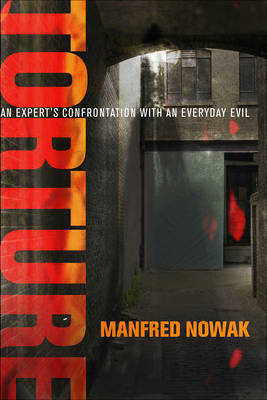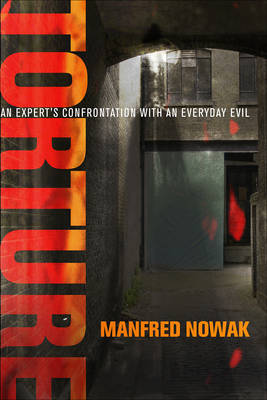
- Retrait gratuit dans votre magasin Club
- 7.000.000 titres dans notre catalogue
- Payer en toute sécurité
- Toujours un magasin près de chez vous
- Retrait gratuit dans votre magasin Club
- 7.000.0000 titres dans notre catalogue
- Payer en toute sécurité
- Toujours un magasin près de chez vous
Description
Torture represents a direct attack on the essence of human dignity. Its mere mention evokes a prolific and sordid history: Europe in the Middle Ages, with beds of nails, witch hunts, and burnings; the brutal methods used by military dictatorships against political dissidents in 1970s Latin America; and the gruesome photographs from Abu Ghraib, Guantanamo Bay, and other Bush-era places of detention. While leaders in the West had once hoped that torture would disappear by the end of the twentieth century--and that our children would read about this unfathomable practice in history books and not in the daily papers--research indicates that torture is still routinely used in the majority of twenty-first-century nations.
In his six years as the United Nations Special Rapporteur on Torture, Manfred Nowak was tasked with reviewing thousands of complaints of torture and detention, investigating facts and circumstances surrounding the global practice of torture, and drawing up recommendations aimed at combating torture. Now, in Torture, readers can get a firsthand glimpse of how modern-day torture is investigated and understood by those working on the frontlines of researching, addressing, and preventing it. Nowak recounts his experience visiting countries, reviewing documents, collecting evidence, and conducting interviews with perpetrators, witnesses, and victims of torture. He offers vignettes of the many states he visited, comparing their diverse experiences, and he explores the rise of new twenty-first-century practices of torture, questioning whether capital punishment, corporal punishment, solitary confinement, and contemporary forms of slavery qualify as torture. Ultimately, Torture offers vital insights for human-rights scholars and professionals as it tries to make the unfathomable more comprehensible and to clarify the causes and dynamics of torture.Spécifications
Parties prenantes
- Auteur(s) :
- Editeur:
Contenu
- Nombre de pages :
- 208
- Langue:
- Anglais
- Collection :
Caractéristiques
- EAN:
- 9780812249910
- Date de parution :
- 20-04-18
- Format:
- Livre relié
- Format numérique:
- Genaaid
- Dimensions :
- 155 mm x 231 mm
- Poids :
- 430 g

Les avis
Nous publions uniquement les avis qui respectent les conditions requises. Consultez nos conditions pour les avis.






